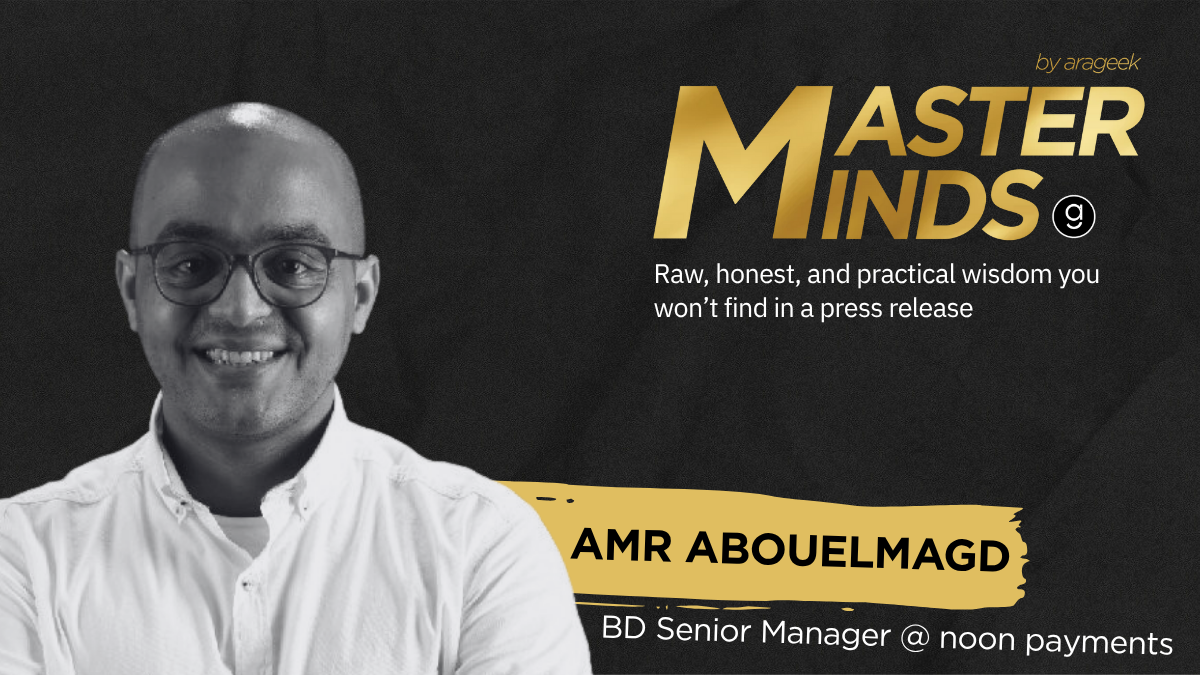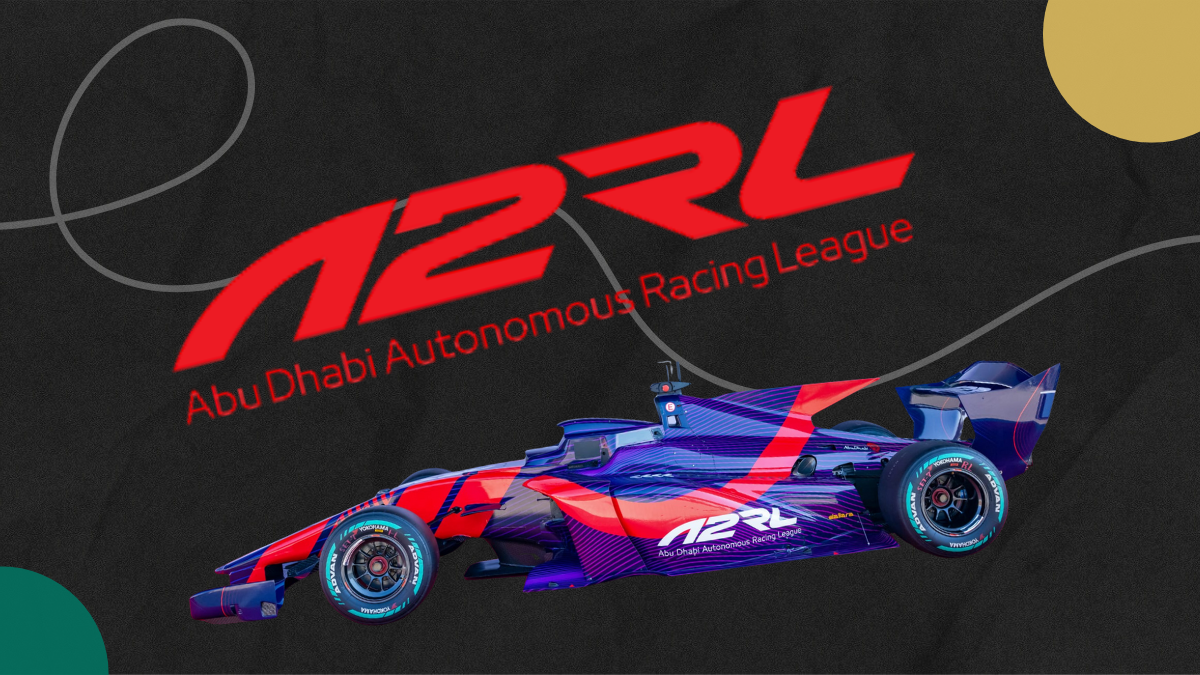Conversation with Amr Abouelmagd Eldeeb – MasterMinds

7 min
Today on MasterMinds, we meet a seasoned business leader and fintech expert whose career reflects the evolution of digital commerce across the MENA region.
Amr Abouelmagd Eldeeb, Senior Business Development Manager at Noon Payments (KSA & Egypt), stands at the intersection of innovation, strategy, and financial technology—bridging global platforms with regional growth opportunities.
With over 16 years of experience spanning fintech, e-commerce, and digital transformation, Amr has played a pivotal role in shaping how payments and online business ecosystems evolve in the Middle East. His journey includes leading business growth and strategic expansion at major institutions such as Noon Payments, Fawry, Amazon, CAE Bank, and Jumia, where he spearheaded the launch of fintech solutions and forged partnerships that transformed digital transactions.
Driven by impact and guided by a deep understanding of both technology and market behavior, Amr’s work embodies the balance between innovation and execution. Whether building scalable payment infrastructures or empowering merchants across borders, he continues to prove that true fintech leadership lies in connecting opportunity with accessibility — and transforming every transaction into progress.
To begin with, how was your first journey into the world of e-commerce and fintech?
It was an exciting journey. I started working in sales in 2009 and went through several major companies — whether in retail, e-commerce, or payments and fintech. Through these experiences, I discovered my passion for e-commerce and payments, and how they can enhance customer experiences in shopping and payments across different channels.
I was also able to develop growth strategies that helped companies achieve their goals. On a personal level, I learned a lot, innovated, and built meaningful relationships with many people who had a great impact on my personality.
What motivated your shift from e-commerce to digital payments? Was it
The transition was driven by my desire to take on new challenges. I believed that digital payments represented the future — and indeed, that’s exactly what we’re witnessing today. Fintech has become one of the most important sectors, so the move was a planned one, and of course, it was made possible by God’s grace first and foremost.
You’ve worked for leading companies such as Jumia, Amazon, Fawry, and Crédit Agricole. How did these diverse experiences shape your professional vision?
Each experience provided me with a unique perspective on how to operate in different markets. I learned how to develop solutions that meet market needs, and I gained valuable lessons in innovation and planning.
Every company and every person I worked with taught me something new — and that, in my opinion, is what truly matters in the career of anyone who seeks success and impact.
Having worked across both Egypt and Saudi Arabia, what are the main differences between the two markets in terms of fintech development?
The Saudi market Is more open to innovation, while the Egyptian market is witnessing a growing demand for digital solutions. Both are among the largest markets in the region in terms of the number of customers and the volume of payment transactions. Both the Saudi and Egyptian central banks play a vital role in developing the payments ecosystem alongside the banks — and that’s absolutely crucial.
Are there plans to expand into new markets in the Arab region?
Yes, we are already operating in Egypt, Saudi Arabia, and the UAE, and we’re able to serve clients across the Arab region — which is something we’re proud to have achieved, thanks to God.
From your perspective, what are the key factors that determine the success of a fintech company in the Egyptian market?
Innovation, understanding market needs, building trust with clients and merchants, and continuously developing products to simplify payment management.
How did you succeed in building strategic partnerships with major entities such as Emaar, Americana, and Tabby?
We focused on offering innovative solutions and building relationships based on trust, which helped us secure these partnerships. These are indeed some of our largest partners, but we also work with many other major companies in Egypt and Saudi Arabia. Together, we’re achieving remarkable success — and you’ll be hearing more about it very soon, God willing.
How do you envision the digital payments landscape in the Arab world over the next five years?
I believe it will become more integrated and innovative, with a greater reliance on digital technologies.
How do you evaluate the role of Egyptian banks in supporting the digital payments ecosystem? Do you view the relationship between banks and fintech companies as competitive or collaborative?
I believe banks play a positive role, and the relationship is mostly a collaborative partnership aimed at helping merchants and customers improve their payment capabilities across multiple channels.
Banks also play a critical role in providing financing to businesses and merchants, which increases payment activity overall. As I mentioned before, we complement each other — and that’s how the ecosystem succeeds and meets the market’s evolving needs.
How do you see the digital payments market in Egypt evolving over the coming years?
I expect significant growth, driven by increased awareness among users, companies, and banks. True development comes from collaboration across the entire ecosystem — and that’s something I always emphasize, because it’s the key to success in any sector.
In many of your roles, you’ve led the launch of new products. What key lessons have you learned from these experiences?
Research and development, and listening to customer needs, are essential. In technology, you must always explore and innovate to stand out. Although I work in business, I like to be involved in everything — I believe I’m the face of the company and an integral part of the team.
Having knowledge of every aspect helps me perform better and achieve my goals. My advice to anyone is to always stay curious and keep learning — just like a doctor — especially in fintech or e-commerce.
What advice would you give to young people who want to enter the fintech or e-commerce fields?
Invest in continuous learning, and always stay open to innovation.
What are Noon Payments’ main plans for the coming year?
We plan to expand our services and strengthen our strategic partnerships.
What were the main regulatory or technical challenges you faced while obtaining the Central Bank of Egypt’s (CBE) acquiring license?
There were strict regulatory requirements, but through close cooperation with the relevant authorities, we successfully overcame them. Today, we hold licenses in partnership with three banks: Banque Misr, the National Bank of Egypt, and First Abu Dhabi Bank.
I’d like to emphasize the importance of the Central Bank’s regulations in organizing the payments ecosystem, and I truly appreciate their efforts. I also want to thank the banks — they’re our success partners. It’s a complete ecosystem, and success is only possible through collaboration.
With major global companies entering the fintech market, do you see this as a threat to local companies or an opportunity for collaboration?
I see it as an opportunity for collaboration. Local companies can benefit from global expertise — and we’re already seeing this happening across the Arab region, where many international companies are engaging and adding real value.
With strong competition from companies like Fawry and Paymob, what differentiates Noon Payments in your view of the market?
We focus on delivering a unique user experience and flexible solutions that set us apart from competitors. Our main focus is online payments. Of course, our competitors are strong players, and that healthy competition drives all of us to grow and innovate. Ultimately, it benefits the economy and meets customer and market needs. I’m truly glad to be working in this field among such great competitors and partners.
You launched Noon Payments in the Egyptian market. How do you evaluate that experience in terms of challenges and opportunities?
It was a rewarding experience. We faced strong competition, but we managed to form strategic partnerships that led to significant growth in transaction volumes. We became a strong and competitive player through our innovative payment solutions and products, especially in the online payments space.
You’ve led diverse teams across different markets. What is your management and motivation philosophy?
I believe in open communication and empowering people to make the most of their potential and achieve collective goals. We operate as one team, supporting each other to drive growth and success. I always believe in team spirit — teamwork is what brings true success.
 AI
AI Saudi Arabia
Saudi Arabia UAE
UAE Egypt
Egypt




